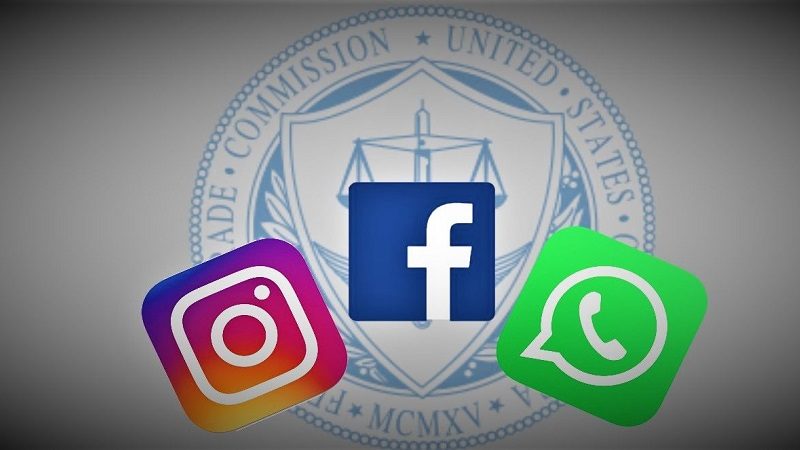The hidden truth about Slack’s sale to Salesforce worth billions of dollars

Slack desired to remain independent. However, in an environment where tech giants were in control, it was an impossible task.
Last week, Slack, declared that tech giant Salesforce would purchase it at a mammoth $27.7 billion. When you consider many factors, this should be termed as a fantastic gain and success story. However, the truth is that for Slack, it signifies a definite turn-around. Before this, Slack has said in no uncertain terms that in spite of the latest rivalry from Teams, a major copycat from Microsoft, it wished to remain autonomous.
Our liberated market trades on the basis that superior, innovative items will be more successful compared to less superior ones that established companies like Microsoft produce.
However, even though it appears that Slack resolved to let Salesforce acquire it, currently, it appears that this is far from the reality. Slack presents one of the numerous Silicon Valley tales, about a ‘defensive’ takeover, where a firm cannot compete autonomously anymore with the tech giants.
These giants have endless cashflow and broad consumer interactions and many times misuse their status and dominate smaller upstarts, destroying them.
Although Slack set up an extremely strong product and worked with commendable efficacy, it was also unable to remain autonomous when competing against Microsoft. Therefore, if a firm like Slack is unable to withstand the integration of corporate power, the clients’ capability of having the freedom to pick the most ideal and effective item is at peril.
I will always recall how taken aback I was when I read the headlines about fundraising in the 2010s. How was it possible that Slack, which was ‘simply another messenger app’ managed to generate hundreds of millions of dollars, while its product did not have a concrete method of shielding itself against big tech? However, I gained faith after using Slack.
Amazingly, the product made tasks enjoyable. Using Slack after experiencing Microsoft Outlook, which can be termed as the desert, was similar to drinking fresh water after a lengthy drought.
Slack concentrated on the user experience and provided intuitive design, therefore, assisting to alter the chat paradigm.
The modest ‘emoji react’ options available on Twitter, Facebook posts, as well as Microsoft teams all originated from this striking design alteration.
Slack offered the ideal product, and it was so superior in quality that a million users utilized it in only 18 months after its launch. However, at the beginning of 2016 this development took a slow turn. Although since that time the next four years saw the firm’s user base triple in number. It signified a growth element that fell much below the expectations that the founders had set.
Many startups desire to experience that type of development; it is not simple. However, the slowdown indicated that Slack was going through major issues. Microsoft decided to dominate the market in 2016, although it already had the client base and sales force. It mainly resolved to duplicate Slack and combine it with the Microsoft expert suit then make it free.
In the same four years during which Slack’s user base tripled, according to Microsoft Teams, it acquired 115 million users, an indication to the globe that item quality is not sufficient to salvage a startup if Big Tech is interested in a part of it.
Matt Stoller’s newsletter ‘Big’ says that ‘Microsoft is known to ’share its latest product with present clients at an affordable rate or for free, and combines it with the current product lines. In a society with operational antitrust regulations, such activities would be unlawful.’
As a result, in the 1990s, the company had issues with federal antitrust regulators. Also, this year Microsoft has used similar tactics, and Slack made some allegations against Microsoft in the European Union.
However, it appears that Slacks’s leaders thought that taking legal action would not yield quick results and opted to use another method to salvage the firm. To keep up with with Microsoft, it was essential for Slack to have a huger enterprise sales team, and the big tech Salesforce provided this for them. I am confident that the acquisition was elicited mixed feelings.
Slack is not the first firm whose business was undercut by a moderately low-lift act such as duplicating an interface or altering terms of use. This monopolistic power discrepancy has made businesses experience a lot of negativity. Vevo is one example; in 2018, they had to limit most of their services because YouTube increased their pressure on them.
An interesting fact is that before this, YouTube had invested in Veco and most startup founders believed that this action meant that Big Tech was ‘crossing its fingers’ hoping that a competitor would conquer the immense power struggles between them and win.
When startups start to thrive in a sector that the giants consider a challenge to their business, malicious firms that are doing well block their efforts of becoming rivals that are to contend with in future.
Instagram is a good illustration of this. Confidential communication between Kevin System, Instagram cofounder and investor Matt Cohler indicates the predatory association between upstart competitors and tech giant executives.
Instagram gained more fame with users, while Mark Zuckerberg’s wish to ‘eliminate’ the app became stronger. Yesterday, the taking over of Instagram by Facebook now creates the foundation of a new antitrust investigation from numerous governments and federal regulators.
The past few years have indicated an awesome bipartisan interest in blocking the monumental control that major big tech firms have; it even triggered suggestions to split them.
But, as lawmakers in America argue about what they believe to be anti-political discrimination during antitrust hearings, our regulators still support major acquisitions. It is a sign that they will not shield our free market from the real danger it faces; a level of power that is untouchable, which is established in significant amounts of cash, consumer interactions and staff labor that these firms have acquired with time.
It is worth noting that in spite of Slack’s status showing that Microsoft has too much power in the business market, Microsoft has not participated in most of the Capitol Hill antitrust hearings.
The situation Slack finds itself is an example of many different acquisitions of late; however, it is a small example of what founders experience each day.
Each startup founder addresses this question when talking to prospective investors;
‘What is your strategy concerning rivalry with the tech giants?’ This is a common question and a warning sign for all of us.
It is a fact that tech behemoths produce major innovations; however, smaller firms with smaller skills, objectives and goals also present this.
For consumers as well as startups, combining innovative startups with some big companies is worrying. It means that soon we will not be able to select the tools we like if we only depend on merit.
We need to balance the playing field again unless we want our future to involve products that only several firms offer.

